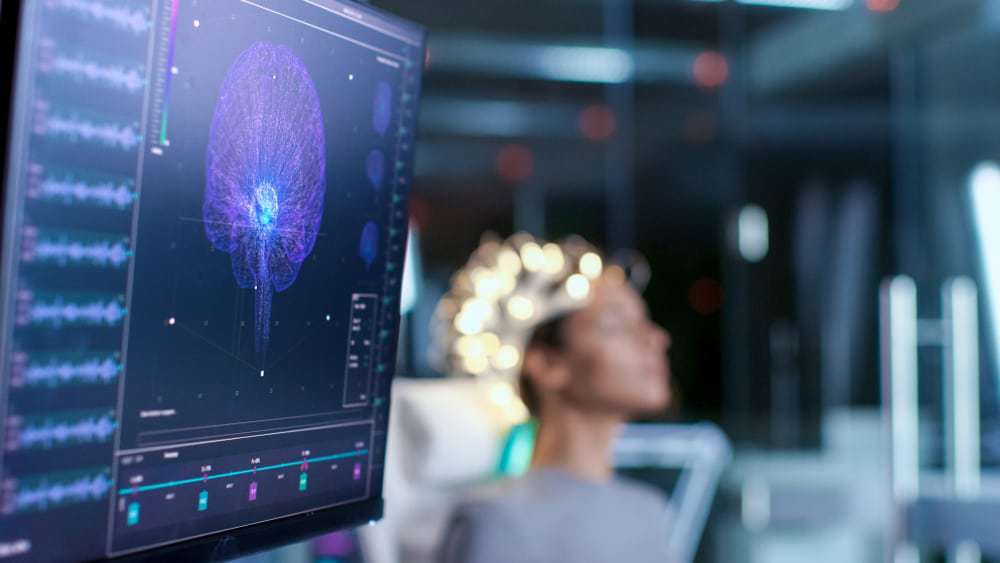 Millions of car accidents happen every year in the United States, and many result in injuries to drivers and passengers. Some car accident injuries are more obvious than others, like scrapes, bruises, bleeding, and broken bones. However, some injuries can have unusual symptoms that might surprise you. Car accident injuries can also have delayed symptoms as shock and adrenaline can mask pain and other symptoms during a traumatic event. Different types of pain can indicate what type of injury you are dealing with. For example, a shooting, stabbing pain that radiates into your extremities is one example of neuropathic pain after a car accident. If you experience any neurological symptoms after a car accident, your doctor may recommend you see a neurologist. Here’s what you need to know about what types of neurological injuries are common after a car wreck and how a neurologist can help.
Millions of car accidents happen every year in the United States, and many result in injuries to drivers and passengers. Some car accident injuries are more obvious than others, like scrapes, bruises, bleeding, and broken bones. However, some injuries can have unusual symptoms that might surprise you. Car accident injuries can also have delayed symptoms as shock and adrenaline can mask pain and other symptoms during a traumatic event. Different types of pain can indicate what type of injury you are dealing with. For example, a shooting, stabbing pain that radiates into your extremities is one example of neuropathic pain after a car accident. If you experience any neurological symptoms after a car accident, your doctor may recommend you see a neurologist. Here’s what you need to know about what types of neurological injuries are common after a car wreck and how a neurologist can help.
Neurologist vs. Neurosurgeon
First of all, it helps to get a better understanding of the different types of doctors who treat neuropathic pain and neurological injuries. The nervous system refers to your brain, spine, central nervous system, and peripheral nervous system. With over a trillion nerves in your body, your brain uses these nerves to send signals to different parts of your body and control movements, thoughts, bodily functions, and more. A neurological injury refers to an injury that impacts your brain, spine, or nerves. Neck and back injuries are common car accident injuries that can result in neurological symptoms like pain, tingling, and numbness. Both neurologists and neurosurgeons treat injuries, conditions, and diseases that impact the brain and nervous system. However, the main difference between the two physicians is that neurosurgeons perform surgeries while neurologists do not. You can meet with either a neurologist or a neurosurgeon for an examination after a car accident, though it is more common to see a neurologist who specializes in car accident injuries.
How a Car Accident Can Impact You
A car accident can significantly impact you physically, cognitively, and emotionally. You might experience shock or PTSD after a traumatic event like a car accident that causes you to experience greater instances of anxiety, depression, fear, or worry. A car accident can also leave you feeling dazed, disoriented, or overwhelmed as you deal with the aftermath. Physically, you might experience pain, stiffness, soreness, and other signs of a potential car accident injury. Even if you don’t notice pain or obvious symptoms right away, you could still have suffered a serious car accident injury. That’s why you always want to get checked out by a car accident doctor as soon as possible to rule out serious injuries or complications. In some instances, like with a brain injury, you could even show signs and symptoms of an injury that others may notice before you do. It can also take time for pain and other symptoms to set in, so make note of any changes you experience in the hours and days after the accident.
Signs & Symptoms of a Neurological Injury
Whether you start to notice symptoms right away or they develop gradually in the hours or days after a car accident, you could be dealing with a neurological injury. Here are common signs and symptoms of a neurological injury after a car accident:
Neurological Pain
Neurological pain refers to a specific type of pain that many people describe as sharp or stabbing. People also describe neurological pain as a shooting pain that radiates into your extremities. So, you might first notice neurological pain near a damaged nerve or spinal injury, but the pain could start extending elsewhere in the body. This happens because nerves send signals to different parts of the body, so when one becomes damaged, it can disrupt healthy communication and end up sending messages that trigger a pain response.
Tingling & Numbness
One of the most obvious signs of a neurological injury is if you also experience tingling and numbness. You might describe this as a “pins and needles” sensation, like how your foot might “fall asleep” after you’ve been sitting with your legs crossed for a long time. However, this pins and needles feeling might occur alongside pain and become very uncomfortable. Unlike your foot falling asleep, you might not be able to easily shift around or get moving to resolve the tingling and numbness. If you suffered a neurological injury from a car accident, you might notice tingling and numbness get worse with certain movements or activities.
General Weakness
A neurological injury can also lead to general weakness in one or more areas of the body. You might notice weakness in your muscles or one of your limbs even though you do not see any signs of a physical injury like a deep cut or a broken bone. Nerve damage can lead to weakness if the affected nerve typically sends signals to a muscle with information on when and how to move. If you experience any weakness in your body, like you can’t lift an arm or walk properly, then you want to see a car accident doctor or neurologist right away.
Bladder Issues
Nerves also control bodily functions like when you take a breath, when your stomach processes your meal, and when you need to go to the bathroom. Bladder issues are an unfortunate side effect of some neurological injuries when nerves that control bladder functioning become damaged. You may notice painful urination or have trouble emptying your bladder. You could also experience loss of bladder control, which could be a sign that part of your spine has become damaged. You always want to talk to your doctor as soon as possible about any loss of control over bodily functions after a traumatic event like a car accident.
Double Vision
Neurological injuries can also impact your brain and nerves that send signals to your eyes, causing double vision. You might have difficulty focusing your eyes or feel like you can’t see clearly without squinting. In some cases, a neurological injury can lead to larger than normal pupil sizes. You may even feel like your eyes are constantly flickering back and forth or experience your eyelids twitching. This could occur because of neurological injuries like damage to the optic nerve that controls your vision.
Involuntary Spasms
Involuntary spasms refer to any kind of twitching or muscle spasms that you experience after a car accident injury. As mentioned before, you may notice your eyelids twitching because of damage to the optic nerve. Nerve damage can also lead to muscle spasms that may feel like a light fluttering or a deep, cramping pain. These twitches and spasms are involuntary, which means you can’t control when they happen or make them stop.
Types of Neurological Injuries after a Car Accident
 Neurological injuries after a car accident typically impact the brain, nerves, or spine. Here are examples of different types of car accident injuries that can impact these areas and their possible symptoms.
Neurological injuries after a car accident typically impact the brain, nerves, or spine. Here are examples of different types of car accident injuries that can impact these areas and their possible symptoms.
Brain Injury
The most common brain injury from a car accident is a concussion, also known as a mild traumatic brain injury, or TBI. A traumatic brain injury refers to a situation where the brain collides with the skull and leads to bruising or bleeding on the brain. For example, you could hit your head on the dashboard or suffer a blow to the head during a car accident and end up with a concussion. Concussions have a wide range of symptoms, including headaches, dizziness, nausea, and disorientation.
Spine Injury
Spinal injuries can range from misalignments of vertebrae to a herniated disc to a fracture. If you suffer a spine injury during a car accident, you will likely need medical attention right away to determine the severity of your injuries. While mild spine injuries might cause pain and discomfort for a short period of time, a more serious spine injury could be paralyzing or even life-threatening.
Nerve Damage
Nerve damage can occur in a number of different ways from a car accident. A deep cut or laceration could aggravate or damage nearby nerves. A common example of nerve damage from a car accident is a pinched nerve. You could get a pinched nerve from a whiplash injury, where swelling and inflammation of neck muscles and other tissues can compress nearby nerves and cause neurological pain and other symptoms.
How a Car Accident Neurologist Can Help
At AICA Orthopedics, our general rule of thumb is that if your car sustained any damage during a car accident, your body likely did too. Visit AICA Orthopedics in Atlanta to learn more about how our team of car accident doctors can help you. Our neurologists specialize in car accident injuries and are equipped to diagnose and treat a wide range of neurological injuries. They also work alongside orthopedic doctors, chiropractors, and physical therapists to provide you with a comprehensive treatment plan to support your recovery and rehabilitation after an accident.
